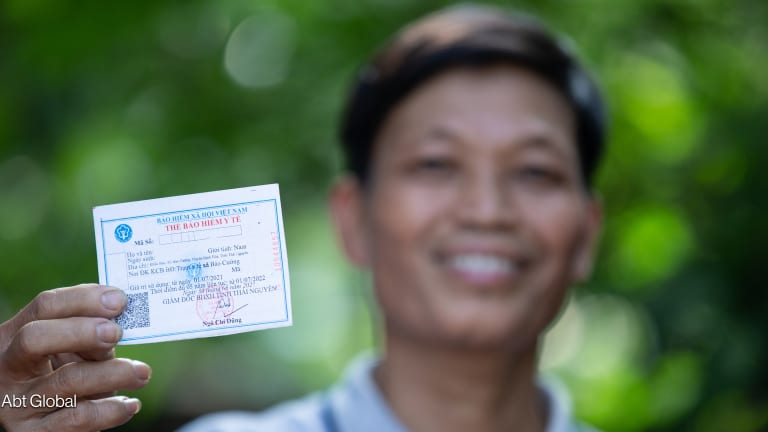
The global approach to HIV has been an overwhelmingly medical and epidemiological one. While this has delivered great therapeutic advances, it has also pathologized perceptions of the virus and further marginalized those living with it. More decisive steps must be taken to secure their rights and guarantee their access to critical health care and prevention services.
Lawyers are often the butt of jokes, and most of us can take satire as well as the next person. But by the same token, it pleases and encourages us to know that we can make a serious contribution to development in the broadest sense. When you’re living with HIV, the services of a lawyer can make the difference between a life of dignity and one of self-stigma; between having a voice and social ostracism; between spending time with your family and never being allowed to see them again.
Picture the following scenarios, if you will, then try to imagine yourself in each:
In Nepal, a man is refused a hospital bed because of his HIV status. Staff throw a cardboard box on the floor instead and make him lie on it.
In Indonesia, a former drug user becomes a go-to offender: She is arrested again and again, just to fulfill a police quota.
In China, an aging couple living with HIV is threatened with eviction from their shop.
In Egypt, a gay man with HIV is socially outcast and prevented from seeing his children.
None of these cases is hypothetical. They are among the hundreds that we, at the International Development Law Organization, have actually helped resolve. We have done so by working closely with our in-country legal aid partners, as well as networks of HIV-positive people, government agencies, nongovernmental organizations and community groups. Increasingly, we interpret both the development and the law parts of our brief as broadly as possible, expanding the latter into areas from which it has traditionally been absent, and taking the former to mean the defense of dignity and human rights as well as economic empowerment.
Today, there are about 34 million people living with HIV. Many of these people are in need not just of antiretrovirals, but of services which are denied to them or which they fear to seek.
Laws that specifically protect people living with HIV and vulnerable populations are rare; where they exist, they are little-known and poorly enforced. Equality and nondiscrimination clauses in national constitutions are not upheld in practice. For justice ministries, marginalized populations and vulnerable groups hardly constitute a priority. People living with HIV, in turn, may have a keen sense of injustice, but little knowledge of the protection available to them or of the ways to gain access to the legal system.
Raising awareness of rights has been a key feature of our work in the countries covered by our health law program. But over the past three years, IDLO and its partners have also acted at a deeper, more structural level: Working with community groups, we have helped create demand for HIV-related services where citizens had resigned themselves to isolation and fear; we have set up legal hotlines and provided legal representation; where people with HIV had been reduced to bribing themselves out of violence and persecution, we have opened avenues of redress and broken this demeaning cycle.
All of this might suggest that we see litigation as the answer: We don’t. Not necessarily, and not often. Many clients choose to keep their HIV status confidential: They would not wish to disclose it in court. Indeed, breaches of confidentiality by the medical establishment are one of the most common grievances we have encountered. Courts, moreover, tend to be costly, time-consuming and distrusted in much of the developing world.
Most disputes have been settled outside the formal court system, through the involvement of community intermediaries. The law need not mean tribunals, or men in robes, or imperious confrontation. But it does mean finding an unequivocal way to ensure that the right of people with HIV to have access to services, and their legitimate desire for dignity, are recognized and safeguarded within their communities.
As the 2012 International AIDS Conference opens in Washington, we have reason to celebrate. New research and therapies hold great promise. The licensing of Truvada by the U.S. Food and Drug Administration has been hailed as a landmark. There can be no doubt that the saving and extending of lives is our overarching goal. And we can only hope that further breakthroughs lie ahead.
Yet a purely medical approach cannot be the world’s only response to HIV. Longer lives are incomplete if they are socially isolated or blighted by violence. In 2001, and again last year, the United Nations affirmed the value of an enabling legal environment in combating the virus. We at IDLO have seen how law, by facilitating access to critical health care and prevention services, can greatly contribute to such an environment.
In countless cases, law, or the absence of it, may determine whether a person gets infected in the first place. It is law that entitles you to bail when you are an arrested drug user or sex worker, thus minimizing the chances that you will be sexually assaulted in detention or deprived of sterile needles. And it is law again that helps a woman secure rights to her home, boosting her position and — yes — her negotiating clout when her partner is disinclined to use a condom.
Law, in short, must not be underestimated as we seek to eliminate the virus in the years ahead. As IDLO lawyers, we believe that so long as HIV stays among us humans, we must defend the rights of all — HIV positive and negative — to live in dignity and security.
Read more:
Search for articles
Most Read
- 1
- 2
- 3
- 4
- 5








